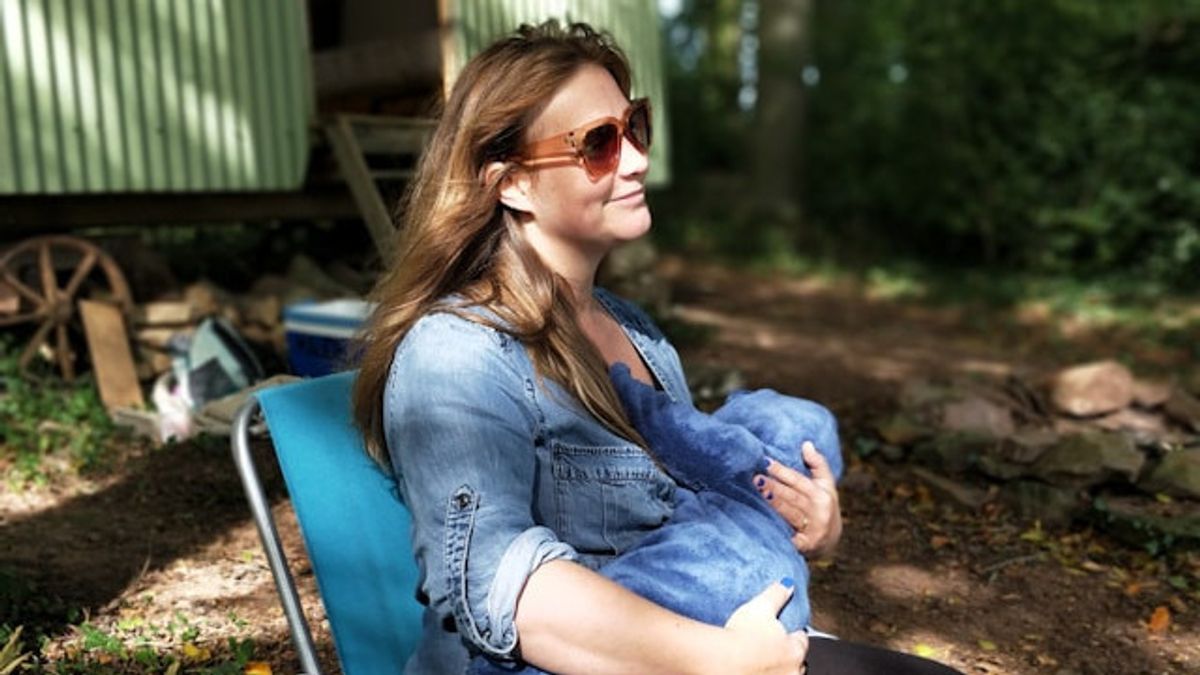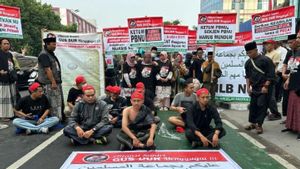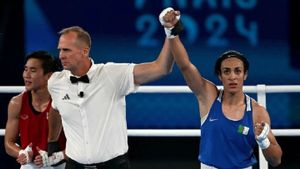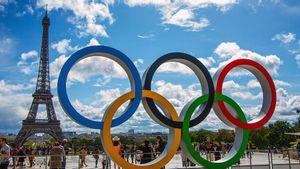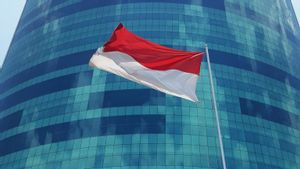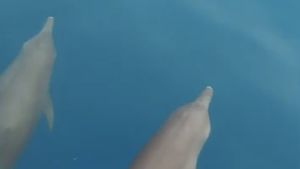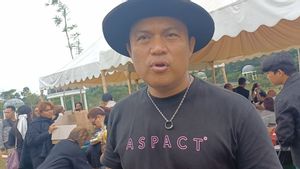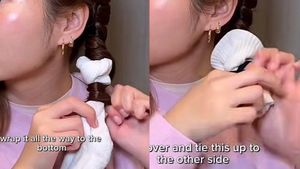JAKARTA The government officially prohibits producers or distributors of baby formulas from providing discounts or promos that can attract buyers. For some people, this is a gift ahead of World Breastfeeding Week (WBW). But, is it possible to stop giving formula milk?
The prohibition is as stated in Government Regulation (PP) Number 28 of 2024 concerning Implementing Regulations of Law Number 17 of 2023 concerning Health.
"Customers or distributors of baby formulas and/or other mother's milk substitute products are prohibited from carrying out activities that can hinder the provision of exclusive mother's milk in the form of: giving discounts or additional or something in any form for purchasing baby formula milk and/or other mother's milk substitute products as an attraction from sellers," wrote Article 33 section C of the regulation.
This regulation was made to support the program of providing exclusive breast milk to babies until the age of the first six months of birth. Giving is continued until the age of two years with additional breast milk complement (MPASI) food.
But as a number of articles in PP 28/2024 which became a polemic, the ban on advertisements for formula milk also reaped pros and cons.
Citing the Ministry of Health page, breast milk is a human-produced milk for baby consumption and is the main source of nutrition for babies who have not been able to digest solid foods.
Breast milk is produced due to the influence of the hormone prolacticine and oxytocin after the birth of the baby. Breast milk that comes out first is called colostrum and contains good immunoglobulin IgA for the baby's body defense against disease.
Exclusive breast milk is very good for baby growth and development. According to the Indonesian Pediatrician Association (IDAI), breast milk consists of 87.5 percent of water. Breast milk also contains carbohydrates, protein, fat, carnithins, vitamin K, vitamin D, vitamin E, vitamin A, vitamins that are dissolved in water, to minerals.
The World Health Organization (WHO) said Indonesia's exclusive breast milk coverage in 2022 was recorded at only 67.96 percent. This figure has decreased compared to 2021 which amounted to 69.7 percent.
SEE ALSO:
For this reason, the ratification of the Health PP received a positive response from the breast milk activists. One of them is Siti Nurukhmah, S.Gz., MSc., a mother and child gisi expert from Muhammadiyah University Surakarta (UMS). He said this PP strengthened the previous rules such as Law Number 36 of 2009 concerning Health and Government Regulation Number 33 of 2012 concerning the Provision of Mother's Milk.
"It's like this is emphasized again by the rules. These regulations not only support exclusive breast milk, but rather for feeding infants and children aged 0 to 2 years," said Siti.
However, the campaign for the importance of breast milk does not escape challenges. Advertising or promoting formulas that are quite intense often makes mothers faced with difficult choices.
Mothers are often trapped by claims that formula milk is better than breast milk because of the many additional nutrients in it. Yet this is a wrong thought.
Breast milk with a myriad of benefits, has a major contribution to the government's efforts to accelerate the reduction in stunting rates in Indonesia. According to Rianda (2023), the government's target of reducing stunting by 14 percent this year will be difficult to achieve if the government does not strictly limit the marketing of formula milk. To note, in 2023, Indonesia's stunting prevalence will still be at 21.5 percent.
The formula marketing rules have been launched by WHO in 1981 through the International Code of Marketing of Breast-Milk Substitutes. However, according to a WHO report, Indonesia has not significantly integrated this international code.
The market's infrastructure market tends to create the perception that the bribe is an equally good alternative to breast milk. In fact, breast milk is the best for babies.
The use of formula milk is not impossible at all. In some conditions, not a few mothers provide bribes. This can be caused because the mother is experiencing certain conditions such as medical indications, death, or separation from the baby.
Provision of formula milk is the last option if breastfeeding is no longer possible. It also has to be provided with a doctor's help record. In addition, giving bribes to babies is recommended not to use dot bottles, but a tube attached to the mother's breasts. This is intended to stimulate the mother's breasts to produce breast milk.
"You have to keep trying to produce breast milk even though you are using formula milk," said Siti. If breast milk manages to come out, then the use of donor formula and breast milk must be stopped and switched to exclusive breast milk completely.
"Usually a few days later the milk will come out," Siti added.
In the midst of the government's efforts to support the provision of exclusive breast milk, not all agree with the PP. The Indonesian Chamber of Commerce and Industry or KADIN said the government's move to prohibit producers of advertising formulas was inappropriate.
Chairman of KADIN Diana Dewi said that in general promotion is an attempt to introduce a product. For this reason, Diana said the government should monitor the circulation of formula milk in the market, not prohibit advertising.
"The government can carry out massive checks and controls so that there is no fake formula," he said.
The English, Chinese, Japanese, Arabic, and French versions are automatically generated by the AI. So there may still be inaccuracies in translating, please always see Indonesian as our main language. (system supported by DigitalSiber.id)
